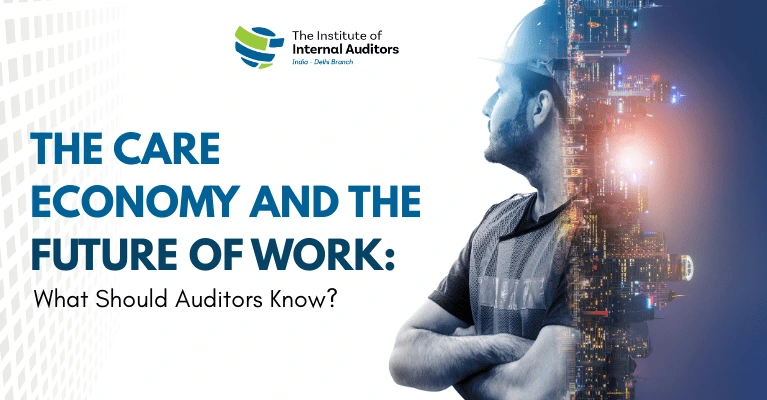The Care Economy and the Future of Work: What Should Auditors Know?
The workplace has changed a lot. The way we think about our professions has changed because of remote work, flexible scheduling, and gig jobs. But there is a reality that is often overlooked: millions of individuals have to balance work with taking care of kids, elderly parents, or people in their neighbourhood.
Seeing the Hidden Value of Care
Every day, millions of people give care for free that keeps families and communities running. This job that isn’t seen on balance sheets, but is mostly done by women, has a big effect on how things work at work. When employees have trouble balancing work and caregiving, companies feel the impacts in the form of lower productivity, more turnover, and weaker team cohesion.
Work arrangements of days promise flexibility, but they also make it hard to separate work and personal life. A parent could be watching a youngster while on a video call. A person who works from home could be in charge of taking care of an older person between client sessions. These facts make it hard to use standard methods for evaluating and overseeing work.
New Problems for Evaluating Workplaces
Auditors today have to deal with hard questions. How do you judge performance when workers have to work at odd times to fit in with their care schedules? What dangers come up when team members work from home and have to take care of family members? Standard ways of evaluating things typically miss these subtleties.
Gig workers have a hard time with schedules that are hard to forecast and have to fit in with both their financial demands and their care commitments. Flexible work rules can be helpful, but they need to be put into place carefully to make sure they really help employees instead of just shifting the load.
Making Organizations That Care About People
Unpaid care work is getting increased attention in policy talks about DEI (diversity, equality, and inclusion). Companies that are ahead of the curve know that helping caregivers makes their whole workforce stronger. Companies that really offer flexibility, parental leave, and support for caregivers don’t simply get a wider range of talent; they also make their teams stronger. When employees feel supported in all areas of their lives, not just their jobs, they are more likely to be loyal and engaged.
What this means for audit practice
To stay important, auditors should:
- Include analysis of developments in the care economy in your risk assessments and culture reviews.
- Suggest systems that accurately show how different types of workers, including those who care for others without pay, really are.
- Make sure that flexible work arrangements are not just legal but also good for the health of workers.
How companies value care, both paid and unpaid, will have a big impact on the future of employment. Auditors who look beyond typical checklists and take into account the real lives of employees will learn more and help make workplaces that are more resilient and focused on people.
Details of the Writer:
Mayank Garg
Director
Nangia Andersen LLP

